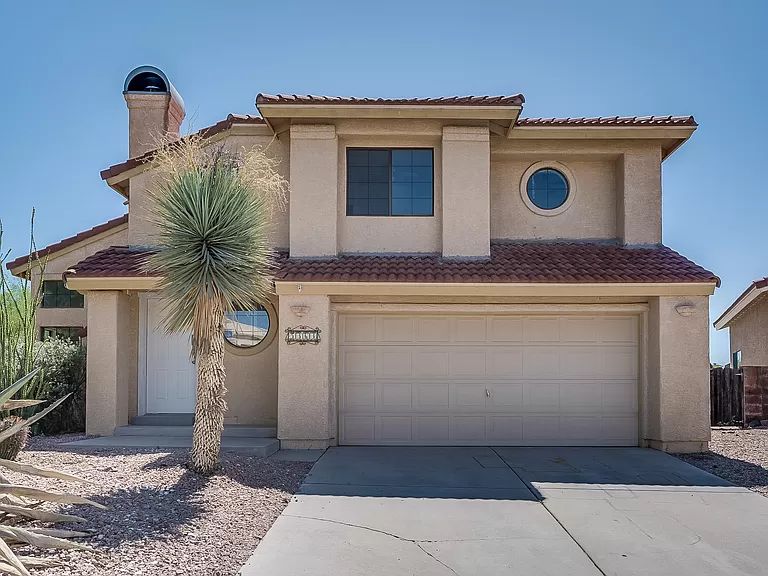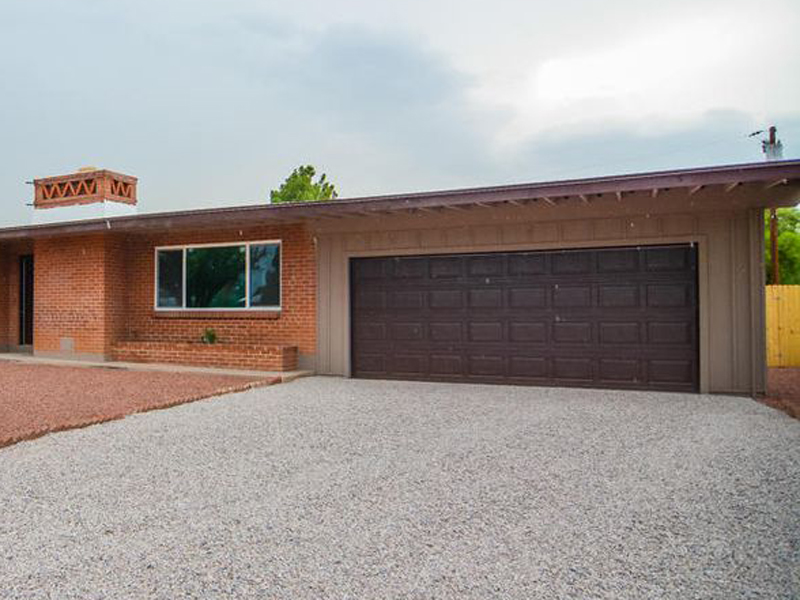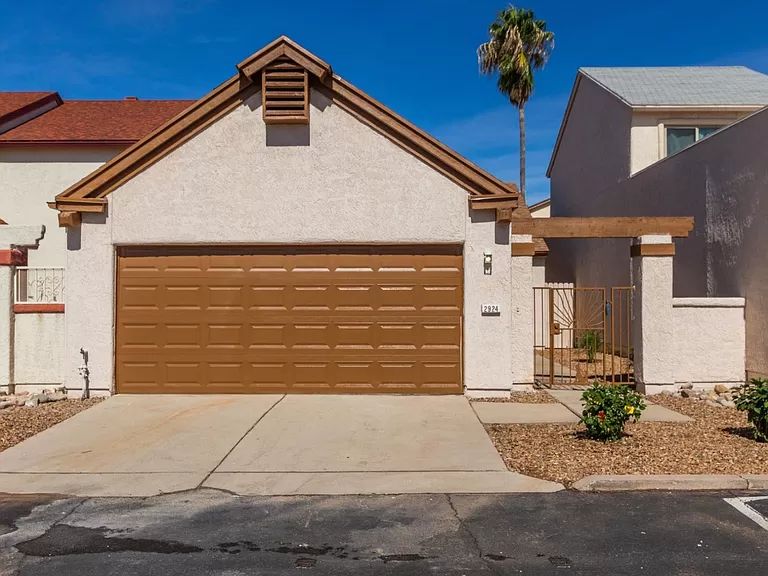Is Your Garage Door Stuck? Here's What to Do Very first
When your garage door will not open up, begin with these essential security checks prior to attempting any kind of repairs. First, guarantee no person is standing near the door and that vehicles are clear of the opening. Try to find obvious indications of damages like damaged panels, bent tracks, or hanging wires. If you see a snapped springtime or drastically harmed components, stop right away and call a specialist—-- these repairs require specialized devices and proficiency to manage safely.

Inspect These 6 Things Prior To Calling a Specialist
Prior to assuming you need pricey repairs, go through this quick diagnostic checklist that addresses most garage door issues:
-
Source of power: Verify the opener is plugged in and the electrical outlet is working
-
Remote batteries: Replace dead batteries in your remote control
-
Manual lock: Examine if somebody inadvertently involved the manual lock
-
Obstructions: Try to find particles obstructing the door's path or sensing units
-
Emergency launch: Make certain the red emergency situation cord hasn't been drawn
-
Circuit breaker: Verify the garage circuit hasn't stumbled
These basic checks fix approximately 70% of garage door problems without needing expert intervention.
10 Usual Reasons Your Garage Door Won't Open Up
Understanding why your garage door opener isn't functioning helps you choose the ideal option. Below are the most regular causes property owners experience:
Dead remote batteries represent the simplest solution—-- when batteries die, the remote can not send out signals to the opener. Power blackouts or stumbled breakers cut electrical power to the motor. Busted springs protect against the door from lifting appropriately and require instant specialist attention. Sensor imbalance causes safety systems to block door procedure. Track obstructions stop rollers from moving smoothly. Motor overload triggers automated shutoffs when the opener discovers resistance. Limit switch problems perplex the opener concerning door position. Wire damage disrupts the training mechanism. Weather-related concerns influence door movement throughout extreme temperature levels. Part wear from age gradually reduces system efficiency.
Problem # 1: Dead Push-button Control Batteries
When your wall button functions however your remote does not, dead batteries are generally the wrongdoer. Many garage door remotes use either 3-volt lithium or 12-volt alkaline batteries. Remove the back cover of your remote and inspect the battery type. Replace with fresh batteries and check the remote. If it still doesn't work, you may require to reprogram it to your opener. Consult your opener's manual for certain reprogramming instructions, as the procedure differs by supplier.
Issue # 2: Power Supply Issues
Garage door power issues typically come from loose connections or stumbled circuits. Inspect that the opener is securely linked into its electrical outlet—-- vibration can loosen up connections gradually. Examine the outlet with one more device to verify it's functioning. Analyze your home's breaker box for tripped circuits, especially if you have actually experienced tornados or power fluctuations. GFCI outlets might have stumbled and need resetting. If the opener has power but won't react, the problem most likely lies somewhere else in the system.
Problem # 3: Broken or Damaged Springs
Busted garage door springs are amongst one of the most unsafe elements to manage. If you listen to a loud bang from your garage or discover the door really feels extremely hefty when attempting to raise manually, a springtime has likely broken. Torsion springs run horizontally over the door, while expansion springs sit on either side. Never ever attempt spring repair work on your own—-- these components save incredible stress that can trigger major injury or death. Expert substitute typically sets you back $150-$300 yet guarantees your security.
Trouble # 4: Blocked Safety And Security Sensing Units
Modern garage doors feature safety sensors that prevent closure when things are detected. These sensors can stop the door from opening if they're filthy, misaligned, or obstructed by debris. Tidy sensor lenses with a soft fabric and make certain absolutely nothing obstructs the invisible light beam between them. Check that sensing units are correctly straightened—-- a lot of have sign lights that reveal connection condition. Sensor issues usually fix with straightforward cleaning and adjustment.
Trouble # 5: Track Obstructions or Damage
Garage door tracks guide rollers as the door goes up and down. Dust, particles, old oil, or little things can jam the system. Evaluate tracks visually and get rid of any kind of obstructions with a brush or fabric. Look for dents, flexes, or bending that could restrain smooth procedure. Minor track changes are feasible for handy home owners, however considerable damage calls for specialist repair to avoid further problems or safety and security risks.
Trouble # 6: Garage Door Opener Motor Issues
When the garage door motor runs but the door doesn't relocate, a number of concerns could be responsible. The motor may be overwhelmed and shutting down as a precaution. Gear wear, particularly in older devices, can avoid proper procedure. Chain or belt drive issues affect power transmission. If you listen to uncommon grinding, clicking, or humming noises, stop using the opener quickly. Motor repair work commonly cost greater than substitute, specifically for systems over 10 years old.
Detailed Do It Yourself Troubleshooting Overview
Follow this organized approach to garage door repairing while prioritizing safety and security throughout the process:
Action 1: Test the wall surface switch first. If it works but the remote doesn't, concentrate on remote concerns. If neither jobs, inspect power supply.
Step 2: Take a look at the hand-operated release cable. If it's been drawn, the opener is disengaged from the door. Press the trolley back to reconnect.
Action 3: Manually test the door by disengaging the opener and attempting to raise the door by hand. It needs to move efficiently and stay in area when half-open.
Step 4: Examine visible components for damages, paying unique interest to springtimes, cables, and tracks.
Step 5: Inspect all safety features including sensors, limit switches, and auto-reverse features.
Action 6: Examination different controls (remote, wall surface switch, keypad) to separate the problem how to reset a garage door opener keypad source.
Always use safety glasses and job gloves when performing examinations, and never ever effort repairs on springtimes or high-tension elements.
When to Call a Specialist vs. DIY Solutions

Understanding when to call a garage door expert versus attempting do it yourself repair services safeguards both your safety and your budget. Deal with these concerns on your own: dead remote batteries, power supply issues, small track cleansing, sensor cleaning and placement, and standard lubrication.
Never ever attempt these fixings on your own: springtime substitute or change, cable repair work, significant track adjustment, electric circuitry concerns, opener electric motor substitute, or any kind of repair including high-tension components. Specialist technicians have specialized tools, training, and insurance coverage to deal with unsafe fixings safely.
Consider repair service costs versus replacement prices, specifically for doors over 15 years old. Modern garage doors supply much better safety and security features, energy effectiveness, and integrity than older models.
Emergency Situation Garage Door Solutions
When you're stuck to a garage door that won't open up and require immediate access, comply with these emergency situation procedures:
Manual Operation: Draw the red emergency situation launch cable to disengage the opener. This allows hand-operated operation but requires appropriate method to avoid injury. Raise the door gradually and evenly, utilizing leg muscles as opposed to your back. Most household doors consider 100-150 extra pounds, making them manageable for a lot of adults.
Momentary Repairs: If the door opens by hand however will not stay up, prop it open with sawhorses or clamps—-- never ever utilize your body or vehicles as supports. For doors that won't shut entirely, ensure the opening is protected if you should leave.
Emergency Service: Several garage door firms use 24/7 emergency solution for scenarios entailing protection concerns, trapped lorries, or total system failures. While much more costly than normal solution calls, emergency situation repairs give prompt services when needed most.
Safety and security Caution: What NOT to Do
Garage door security needs recognizing unsafe repair services that must never ever be tried by homeowners:
Never try to repair springs—-- they save enough energy to cause fatal injuries when they break or are incorrectly taken care of. Don't compel a stuck door—-- this can damage the opener, tracks, or door panels, producing extra pricey issues. Stay clear of bypassing safety attributes—-- sensing units and auto-reverse mechanisms protect against severe injuries and residential or commercial property damages.
Don't disregard unusual sounds—-- grinding, scratching, or banging sounds indicate issues that worsen gradually. Never utilize the door if cords are torn or broken—-- the door might fall suddenly. Do not try electrical fixings unless you're a qualified electrician—-- garage door openers utilize both 120V family current and low-voltage control circuits.

Preventative Upkeep to Prevent Future Issues
Regular garage door maintenance stops most typical issues and extends system life-span significantly:
Month-to-month Jobs: Aesthetic evaluation of all parts, evaluating auto-reverse safety attributes, checking and tightening hardware, and cleaning tracks and sensors.
Quarterly Tasks: Lubricating all relocating parts with ideal garage door lubricant, testing handbook operation, and examining weather condition securing.
Yearly Jobs: Specialist examination and tune-up, spring modification if required, and opener maintenance consisting of belt or chain change.
Seasonal Tasks: Planning for weather condition extremes, inspecting insulation, and readjusting opener setups for temperature level changes.
Consistent upkeep costs far less than emergency repair services and ensures trustworthy procedure year-round.
Garage Door Won't Open Up FAQs
Why won't my garage door open with the remote but deals with the wall surface switch?
This usually suggests dead remote batteries, signal interference, or the need to reprogram the remote. Inspect batteries initially, after that consult your opener guidebook for reprogramming directions.
Can I manually open my garage door if the power is out?
Yes, pull the red emergency launch cable to disengage the opener, then raise the door manually. Be prepared for the door's full weight and lift with appropriate technique to stay clear of injury.
Exactly how do I know if my garage door spring is damaged?
Indications include a loud bang from the garage, the door feeling extremely heavy when lifting by hand, noticeable gaps in the spring coils, or the door only opening a couple of inches before stopping.
Is it safe to utilize my garage door if it won't open right?
No, partial procedure indicates mechanical troubles that might worsen all of a sudden. Quit utilizing the door and have it evaluated by an expert to prevent more damage or injury.
What should I do if my garage door opens up however will not close?
Examine security sensors for blockages or imbalance, take a look at the tracks for particles, and evaluate the auto-reverse function. If these do not solve the issue, get in touch with a specialist.
How much does it set you back to repair a garage door that will not open?
Prices vary extensively relying on the problem: battery substitute ($5-$10), expert diagnosis ($50-$100), spring substitute ($150-$300), or opener substitute ($200-$500).
Can weather influence my garage door's capacity to open up?
Yes, extreme cold can enlarge lubricating substances and influence steel components, while warm can cause expansion problems. Most issues settle as temperature levels stabilize, however persistent issues might require professional interest.
Why does my garage door open up a few inches after that stop?
This generally indicates damaged springtimes, limit button issues, or track obstructions. The opener's security functions quit procedure when resistance is found, preventing damages to the motor or door.
Get Professional Help for Facility Issues
When DIY troubleshooting doesn't solve your garage door troubles, specialist specialists provide the proficiency and tools required for risk-free, long-term repairs. Qualified professionals identify concerns accurately, utilize manufacturer-approved parts, and offer guarantees on their work.
Expert solutions include: extensive system examinations, springtime and cord substitute, opener repair and replacement, track placement and substitute, electric troubleshooting, and emergency service calls.
What to anticipate: upfront prices, accredited and insured service technicians, same-day solution for several repair work, and follow-up upkeep recommendations.
A lot of garage door companies supply totally free price quotes for major fixings and can provide prompt solutions for urgent troubles affecting home safety and security or automobile access.
Obtaining Your Garage Door Working Again
A garage door that will not open does not have to ruin your day or break your budget plan. Start with straightforward troubleshooting actions like examining power, replacing batteries, and analyzing for noticeable blockages. Many problems have fast DIY options that restore regular operation within mins.
However, recognize when expert help is necessary—-- particularly for spring-related concerns, electrical issues, or complicated mechanical failings. Attempting hazardous repairs yourself runs the risk of serious injury and commonly develops a lot more pricey troubles.
Regular maintenance stops most garage door issues and makes sure dependable operation for years to find. When problems do happen, address them without delay to avoid even more pricey fixings and keep your home's protection and benefit. Whether you require a straightforward battery substitute or total system overhaul, solutions exist to get your garage door working smoothly once again.